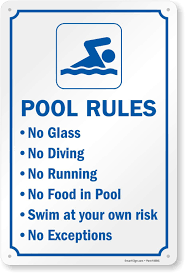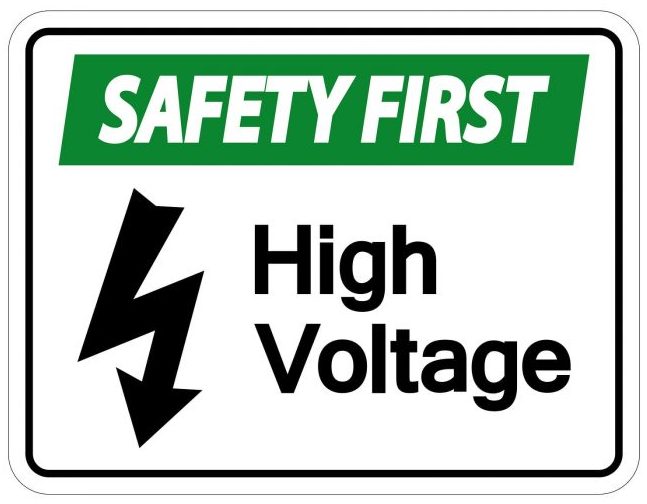Have a backyard swimming pool, spa, or hot tub? If you do, electrical safety should be your top priority. Electric powered equipment and power supplies can create shock hazards, especially around swimming pools, spas, and hot tubs where water and moisture function as a conductor.
Electric Shock: When someone is subjected to electric shock, vital organs may become damaged and there’s a chance you may temporarily lose muscle function. This results in you feeling unable to drop or stop touching whatever is electrocuting you. Electric shock ranges in severity from a slight tingle to extreme pain, burns, and even death. At high voltage, you can lose the ability to breathe, become unconscious, or your heart may even stop. Regardless of the shock’s intensity, the situation should always be treated as an emergency and every precaution should be taken to prevent it.
Shock Sources: Underwater pool lights are a common source of electric shock in swimming pools, spas, and hot tubs. Other sources are circulation motors, pool cleaning equipment, junction boxes for electrical connections, hydrotherapy equipment, exterior pool lights, timer controls, heaters, and electrically operated pool, spa, and hot tub covers. The installation of any of this equipment must meet current National Electric Code (NEC) Article 680 requirements, local authority requirements, and be installed and/or repaired by licensed professionals.
There are five main electrical elements to consider when adding a swimming pool, spa, or hot tub to your home: grounding, bonding, safe distances, GFCIs and instructions/warning labels and signage.
Grounding― provides a low-resistance path from any equipment to the ground for fault currents. Thus, an “electrical ground” is a connection between an electrical device and the earth. All electrical equipment located within 5-feet of a swimming pool, spa, or hot tub wall―as well as any equipment associated with water circulation―must be grounded. Junction boxes, transformer enclosures, circuit boards, ground fault circuit interrupters (GFCIs), panel boards, and underwater lighting must also be grounded.
Bonding― Bonding is when you tie or fasten electrical devices to the same ground potential. Bonding all required pool elements connects the devices with low-resistance paths to ground using a solid copper wire. NEC Article 680 requires all swimming pools, spa, and hot tub equipment to be properly bonded which includes, but is not limited to―
- All metal parts of the pool, spa, or hot tub’s structure
- All metal fittings attached or within the structure
- All metal equipment associated with the structure’s circulation system
- All underwater lighting
- All fixed metal parts, cables, and raceways that are not separated from the structure by a permanent barrier
Safe Distances and GFCIs― “Safe distances” refer to the requirements for keeping electrical receptacles, light fixtures, and similar equipment away from a pool, spa, or hot tub or any other potentially wet area. NEC Article 680 requires all of these items to be no closer than 10-feet from the pool, spa, or hot tub’s wall. GFCIs measure the difference between input and output currents through a circuit. When someone is being shocked, the rapid discharge of electricity results in largely different input and output currents. When the difference between input hits a certain threshold (5 milliamps) a GFCI receptacle opens the circuit limiting the shock potential.
Warnings, Instructions, and Procedures― Every swimming pool, spa, and hot tub should have warnings, instructions and procedures in place for electrical safety. Written instructions should be made which cover all use of electrically operated equipment. Areas that pose safety hazards should be marked with clearly visible signs warning of electrical danger.


Going beyond electrical safety for swimming pools, spas, and hot tubs― The best way to understand electrical safety for swimming pools, spas, and hot tubs is to consult and utilize a licensed electrical contractor when completing your backyard swimming pool, spa, or hot tub installation or repairs.
You may also want to check out Pool Operation Management (POM). Founded in 1980, POM is nationally recognized for their commercial and residential pool consulting services ranging from liability and risk management, to compliance with government regulations, to operation and mechanical questions.
Other sites worth visiting are
- “How can I make sure my swimming pool is electrically safe”
- “Electrical Code Requirements for Swimming Pools & Spas”
If you are considering adding a swimming pool, spa, or hot tub this summer, call Branham Electric. Our service technicians, are experts in swimming pool, spa and hot tub wiring, bonding and grounding. We’ll make sure your family has a safe and enjoyable summer.

